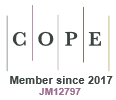Twenty-five years of International Journal of Wildland Fire
Susan G. Conard A , Stefan Doerr B and Jenny Foster CA Editor-in-Chief
B Editor-in-Chief
C Publisher
International Journal of Wildland Fire 25(12) i-i https://doi.org/10.1071/WFv25n12_FO
Published: 5 December 2016
The year 2016 closes with 25 years of the International Journal of Wildland Fire (IJWF). As we celebrate this landmark, IJWF remains the only journal dedicated to publishing peer-reviewed research on all aspects of wildland fire. Founded as the official scientific journal of the International Association of Wildland Fire (IAWF), it was aimed at meeting the needs of the rapidly growing international wildland fire science community for a dedicated, multidisciplinary peer-reviewed outlet for their research. Its purpose was to disseminate the most important fire research information within the international science community, as well as to practitioners and policymakers who need to ensure their policies and practices reflect the latest scientific evidence. A quarter of a century and over 1300 published papers later, the Journal has seen many changes, yet this primary purpose has remained the same.
The IJWF was initially a quarterly journal and the first nine volumes (1991–1999) were self-published by the IAWF. Publication and management of the Journal was turned over to CSIRO Publishing under contract with IAWF in 2000. In 2001, the Journal published Volume 10, in four issues. Since 2007, the number of issues per year has gradually increased to accommodate rising submissions. This current issue is the 12th of 2016, reflecting the remarkable growth of the Journal and of wildland fire science as a whole. The stature and visibility of the Journal have also increased over time; IJWF is now ranked consistently in the top 10 of over 60 forestry journals in Thompson Reuters Journal Citation Reports. Since 2013, its papers have received over 3000 citations per year.
The Journal’s content is managed by two Editors-in-Chief and a continually expanding team of over 50 dedicated Associate Editors (AEs.) These AEs have expertise in traditional and emerging disciplines of wildland fire science, including climate change and meteorology, fire behaviour, remote sensing, ecology, paleo-climate and fire history, hydrology and many other areas of the physical and biological sciences as well as economics, management, communication and social science. The AEs and of course the reviewers are at the core of enabling IJWF to publish the very best wildland fire science in this increasingly complex and interdisciplinary field.
The Journal is truly international, with the majority of submissions originating from North America (one-third), Europe (one-fifth) and Australasia (one-fifth). The remaining papers come from authors in Asia (one-tenth), with a sprinkling of papers from Africa and South America. Our readership mimics this pattern too! A steady rise in submissions over the last 5 years has translated into an increase in published output. In line with this, we have expanded the number of issues from 8 to 12 in 2016, so our authors and readers now enjoy even more frequent and rapid publication. Over 85% of our institutional subscribers choose to take the online-only option, and our content is being downloaded more than ever, with our website visits also increasing each year.
The world of publishing is developing and changing rapidly, and IJWF has aligned with –and in some cases pre-empted – trends in publishing and delivery technologies. Our new website boasts upgraded search algorithms that make user experience more efficient, and we are in the process of making our content accessible to those with audio/visual/motor impairments by implementing a standard known as Web Content Accessibility Guidelines (WCAG) compliance 2.0 AA (http://wcagcompliance.com/). We support open-access options, and from 2017 will be featuring one additional Editor-Choice open-access paper per issue. Additional partnerships with services such as Meta and Scimex further enhance discovery and promotion of our content, which is a huge benefit for both our readers and authors.
We have, however, retained the long-proven approach of anonymous peer review and thorough evaluation of manuscripts by the editorial team. This inevitably takes time and often involves more than one revision for manuscripts that are recommended for publication, but it ensures that the quality of the research published in IJWF is of the highest standard. We would like to take this opportunity to express our gratitude to our Associate Editors, past editors and reviewers for their invaluable contributions in this process, and all authors for choosing IJWF as the journal to disseminate their work. We also thank our sponsoring organisation (IAWF) and the members of the Editorial Advisory Committee for supporting the Journal as it continues to grow and evolve.
In celebration of the 25th anniversary of IJWF, we have put together a virtual issue, freely available, comprising some of the most frequently cited papers in each 5-year period. This issue (available at http://www.publish.csiro.au/wf/content/VirtualIssues) includes research papers on topics such as erosion and hydrology, fuels, fire behaviour, fire–climate interactions, remote sensing of fire, fuels, fire management and prescribed fire, ecosystem effects of fire, and geospatial analysis of fire, vegetation, and fuels. Authors and co-authors come from more than 10 countries, and the papers serve as examples of the impactful research disseminated through IJWF. Some of the content will be familiar to many of our readers and we invite all of you to take a look at the full breadth of topics included here.
While the world of publishing and research as whole is undergoing rapid changes, wildland fires will remain, and most likely increase in prominence, as important disturbance events in many regions of the world. We look forward to IJWF continuing to serve you, the wildland fire community, by publishing your excellent research on all aspects relevant to wildland fire.


